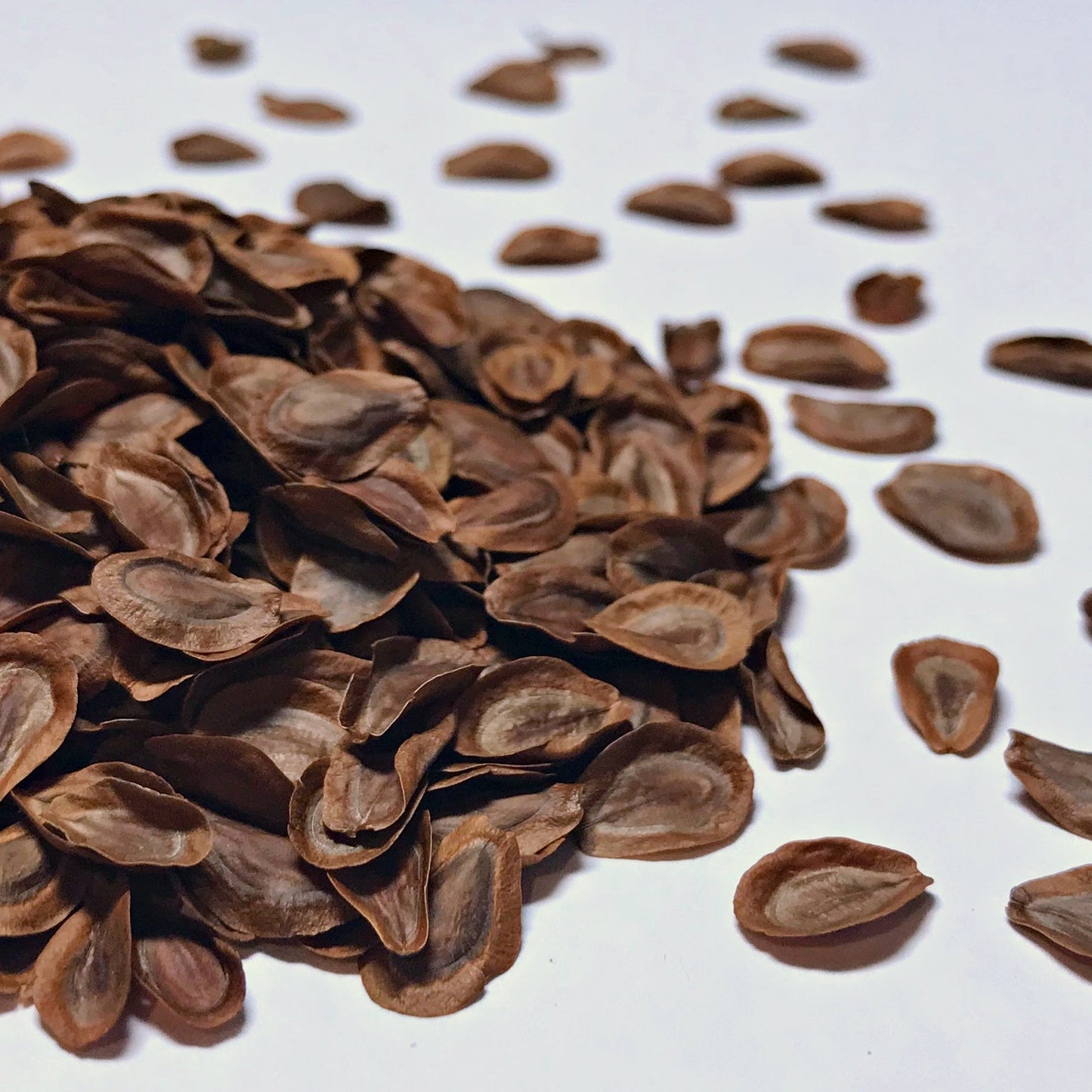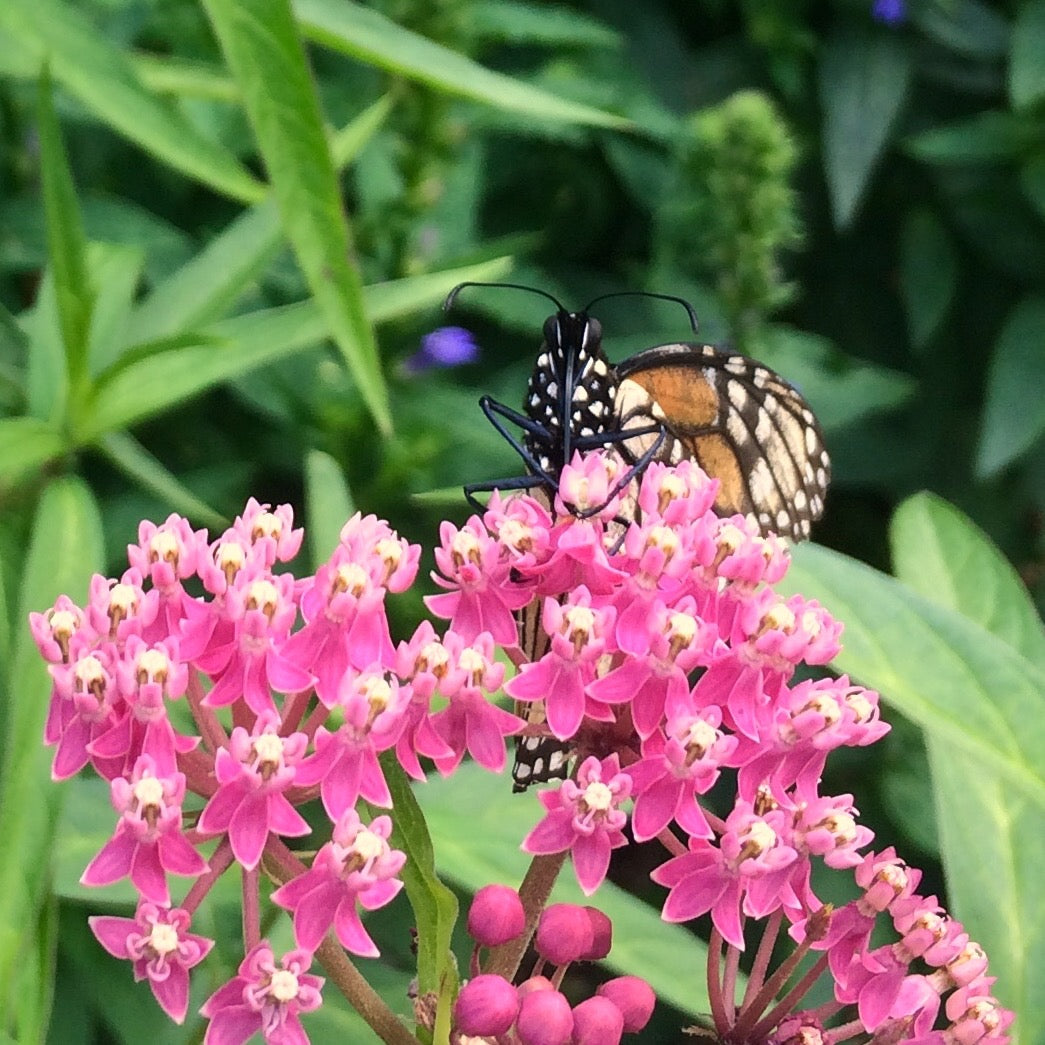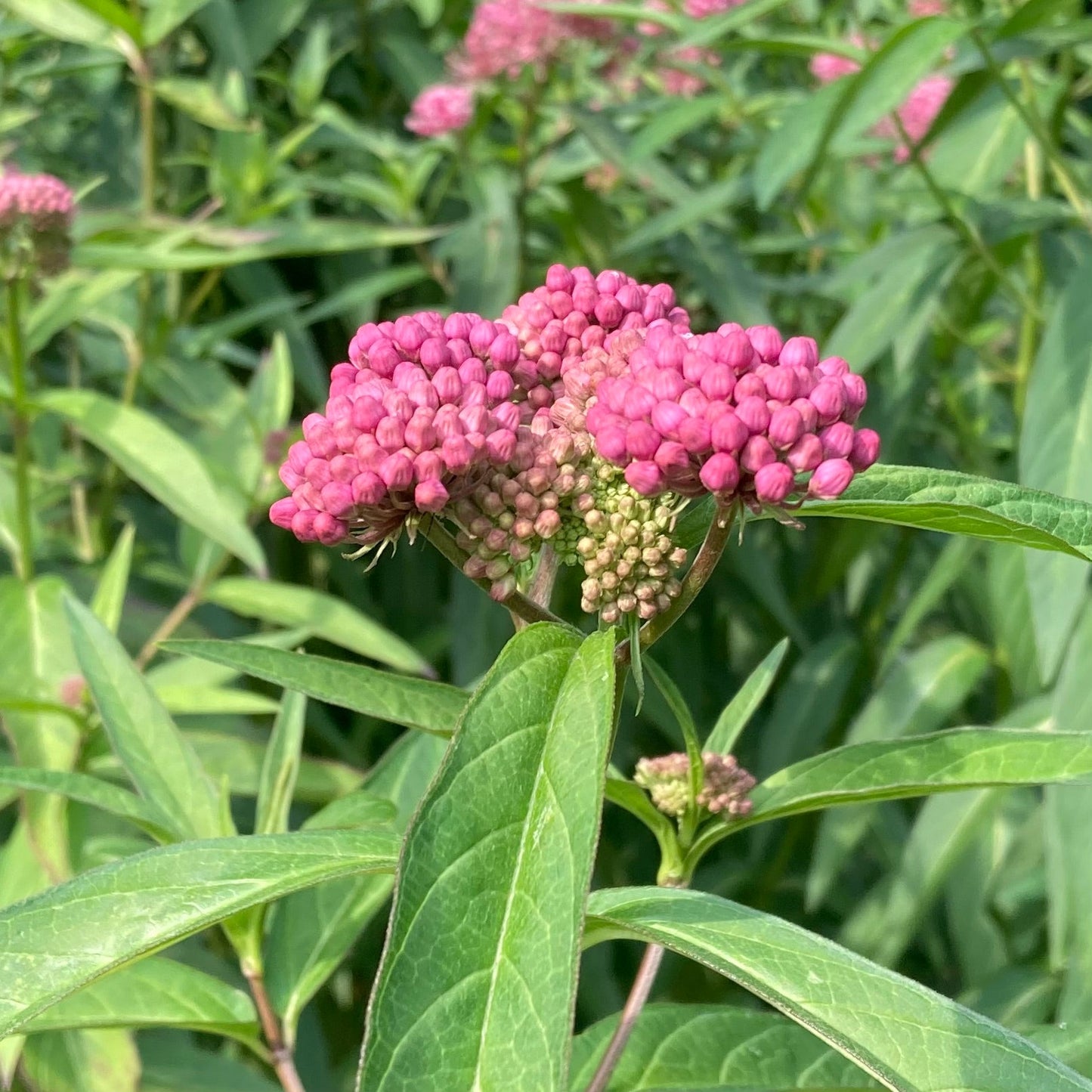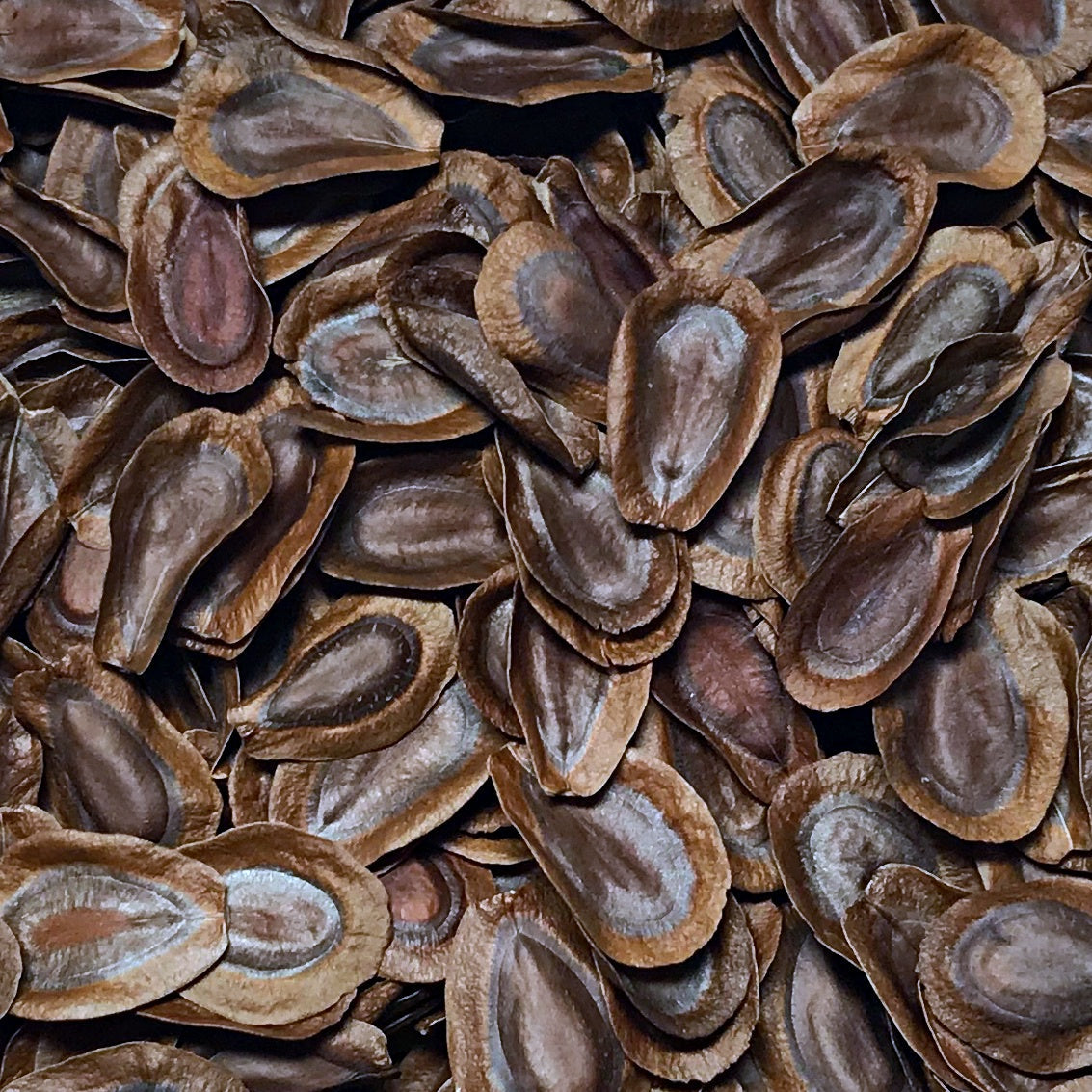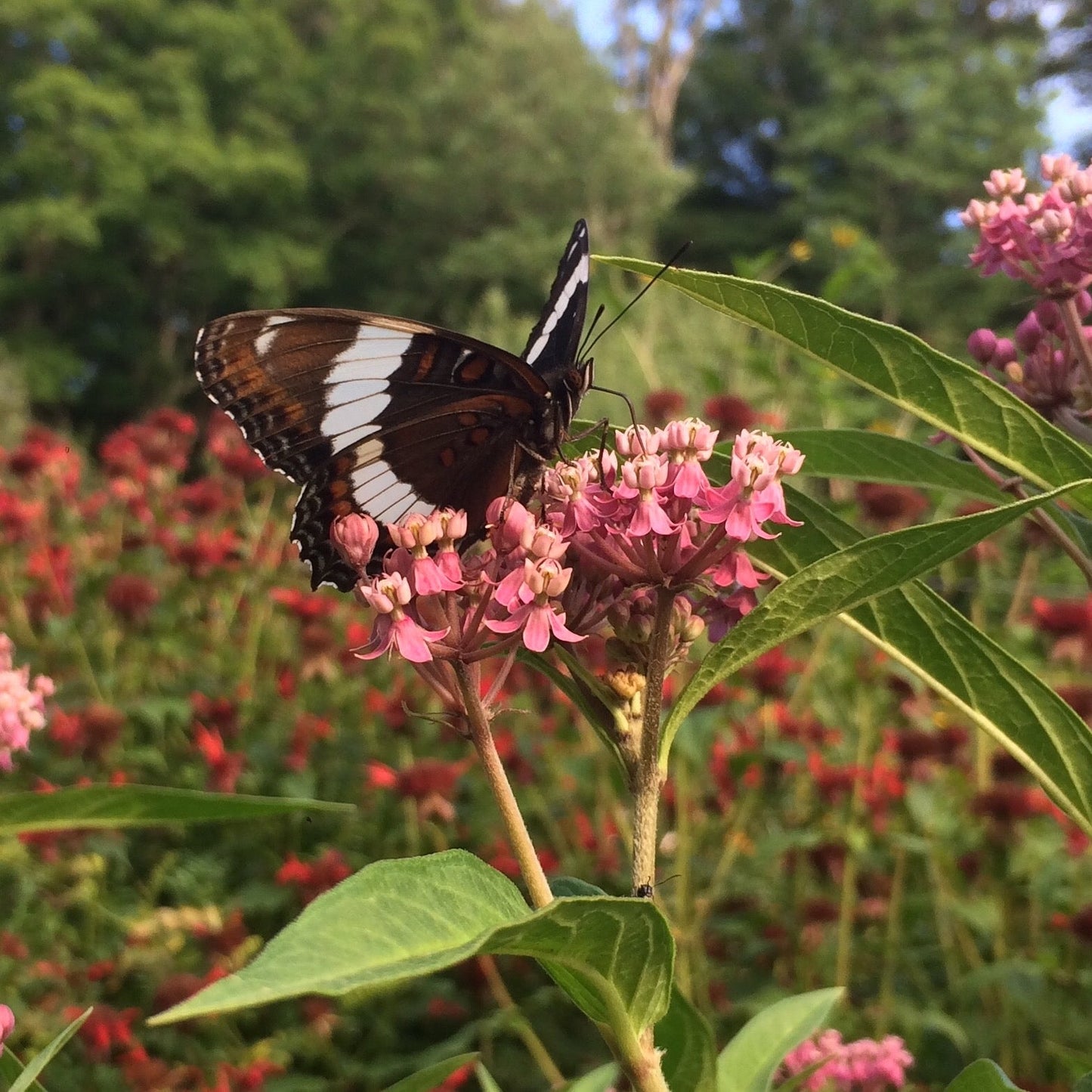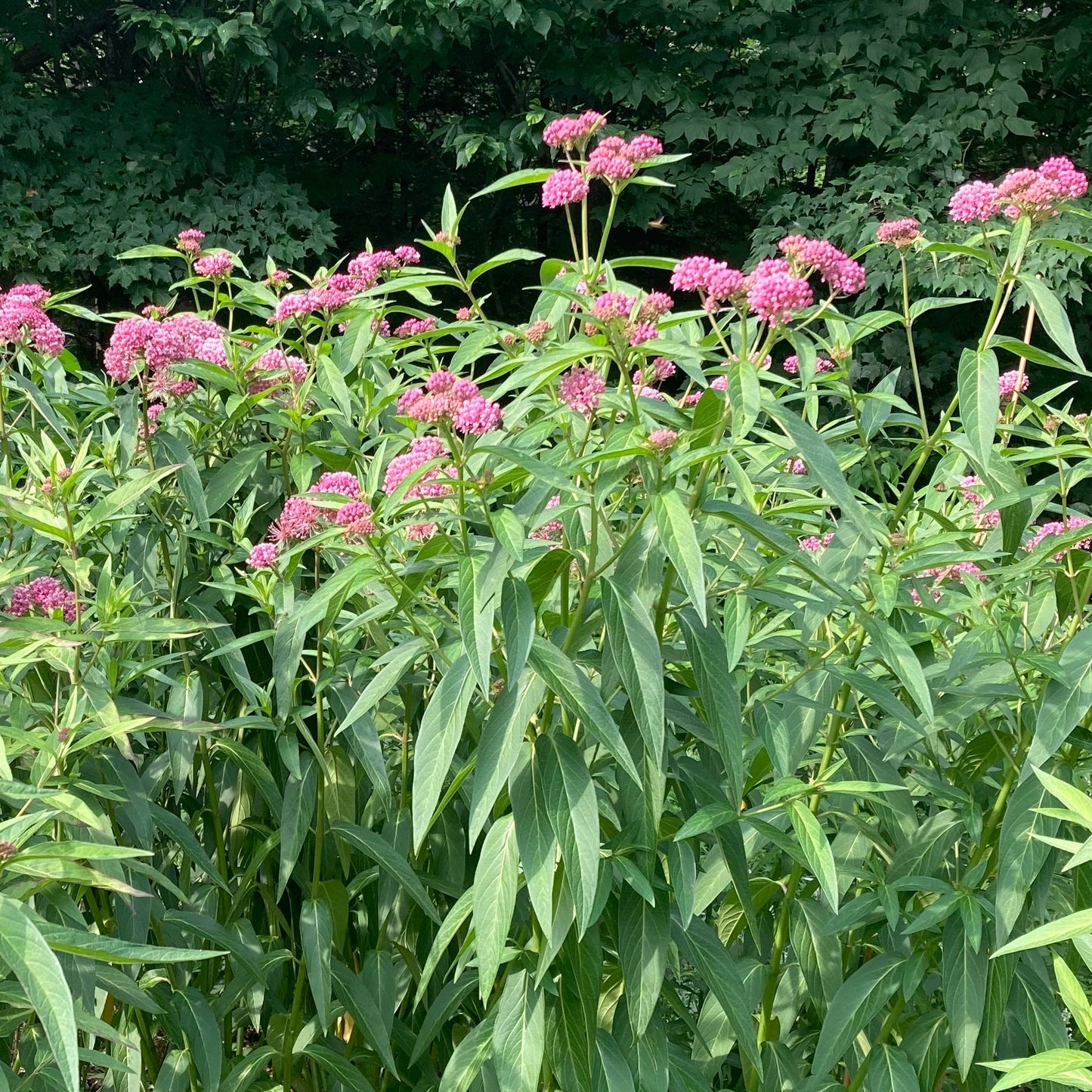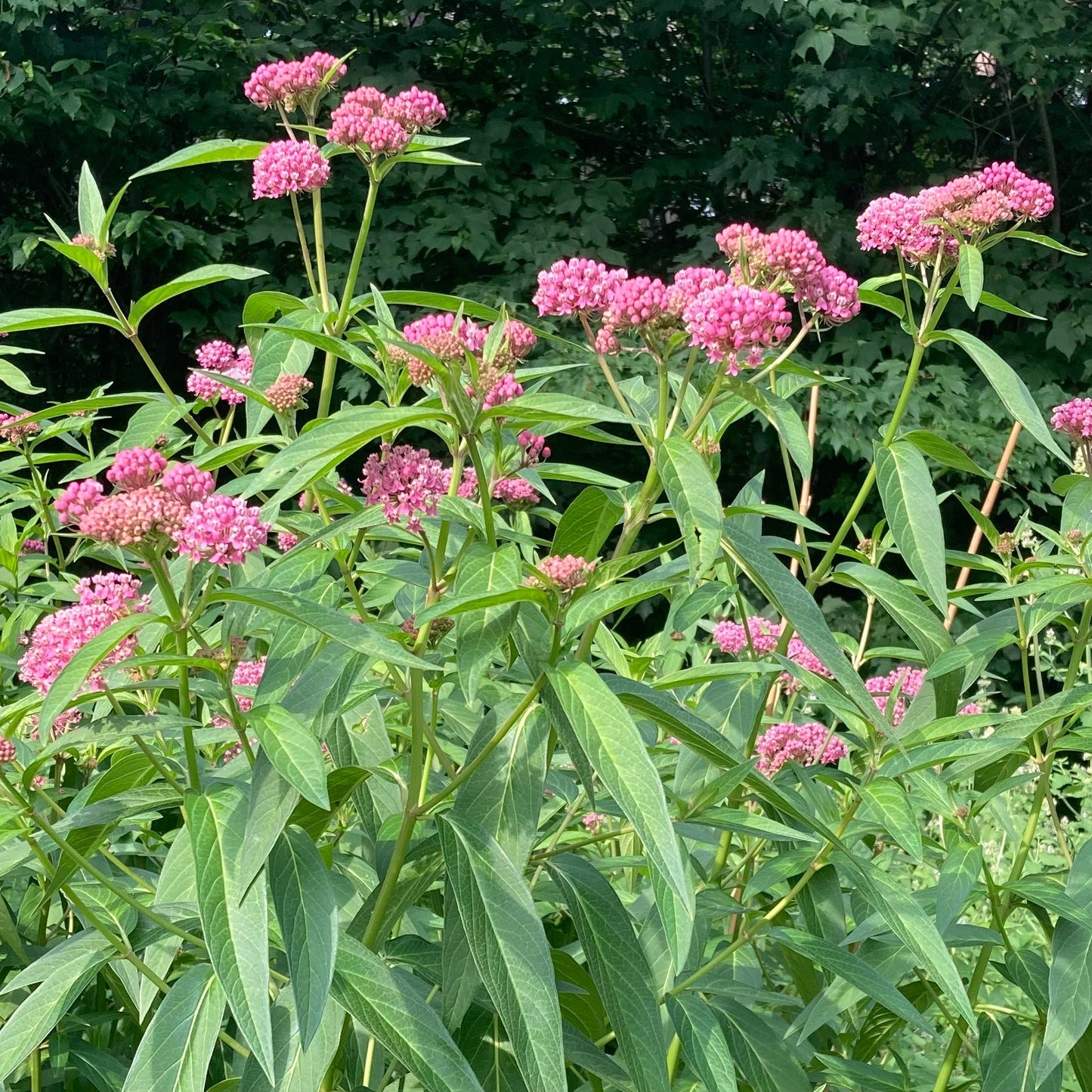Milkweed, Rose (Asclepias incarnata)
List Price: $4.00
Couldn't load pickup availability
Also known as Swamp Milkweed and Marsh Milkweed, Asclepias incarnata is a dazzling display of pink-purple blooms. The vibrant flowers have a subtly sweet vanilla fragrance to them. This native plant thrives in wet soils, and would likely be spotted in floodplain swamps, bogs, and open areas along streambeds. The genus of this plant was named in honor of Aesculapius, the Greek god of medicine, with its species being Latin for ‘flesh-colored.’ Milkweeds have been used in traditional Indigenous medicine in the past, though are now considered rather toxic. However, the young shoots, flowers, and pods of the plant are in fact edible when cooked thoroughly. In WWII, masses of the downy comas attached to every Rose Milkweed seed were used to stuff pillows and lifejackets.
Much as its fellow milkweed species, this plant is beloved by butterflies, and is a choice location for Monarchs to lay their eggs. Other pollinator allies fond of Rose Milkweed include the Hawk moth, Swallowtail, skippers, bumblebees, wasps, flies, and even hummingbirds. Planting Milkweed is not only a way to bring beauty into your own world, but to nourish your ecosystem in providing a food source for its insect community. As plants in this genus are the exclusive site for a Monarch caterpillar brood, planting Milkweed supports this endangered species. This plant is a true gift to the humans who tend to it, and to their surrounding natural world.
Flower Pic Credit: Erin O'Hara

